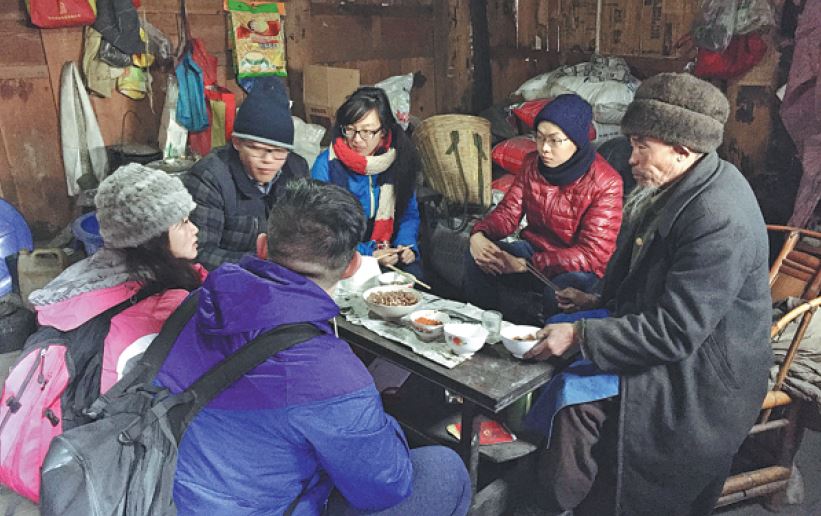A change in thinking from the city to the soil


As a teenager, Luo was saddened by the transformation of her idyllic village; however, deeper questions formed about reconciling the conflict between urbanization and environmental protection.
She applied to study history and environment at Claremont McKenna College in California. In her application letter, she included her personal account about Baguang, which helped her win admission to the college in 2011.
During her vacations, she returned to China and immersed herself in projects in the countryside.
In 2012, she worked as an intern in the Wolong National Nature Reserve, Wenchuan county, Sichuan province. The county was the epicenter of the devastating 2008 earthquake, but Luo noticed that local traditions and culture were disappearing even though physical structures were being rebuilt.
She recalled an evening concert that parents were reluctant to take their children to as the younger generation seemed to have no interest in their own culture."Some parents, mostly born in the 1980s, said they would not bring their children if there was only local music," she said.
Taking action
While studying for her master's at the University of Chicago, Luo was encouraged by the Social New Venture Challenge to establish Laotu. In 2016, the idea became a reality and Lou's hope was her social enterprise could contribute to sustainable development in rural China while preserving traditional culture. One of its projects, for example, aims to help residents in Wolong reduce the use of chemicals in agriculture.
Before the 1970s, traditional farming techniques used only small amounts of chemical fertilizers and pesticides and there was a balance between people and nature. Luo said the balance has since been broken.
"We help local residents reduce the use of chemicals by empowering them with the necessary skills... We want to tell them that they didn't have to change from their traditional methods," she said.
Laotu also educates young people in urban areas, who are increasingly isolated from country life, about rural issues and culture. Its Course in the Mountain program takes young urbanites to rural areas where they conduct field research and interact with villagers. The program is designed to stimulate their understanding of the relationship between people and nature and has so far involved 300 students.
Last year, students were asked to collect folk songs from villagers they encountered while hiking in the mountains.
"Rural areas are part of our unique cultural heritage" Luo said."We, as the new generation, should shoulder our responsibility to put rural China on a trajectory of positive change."





































